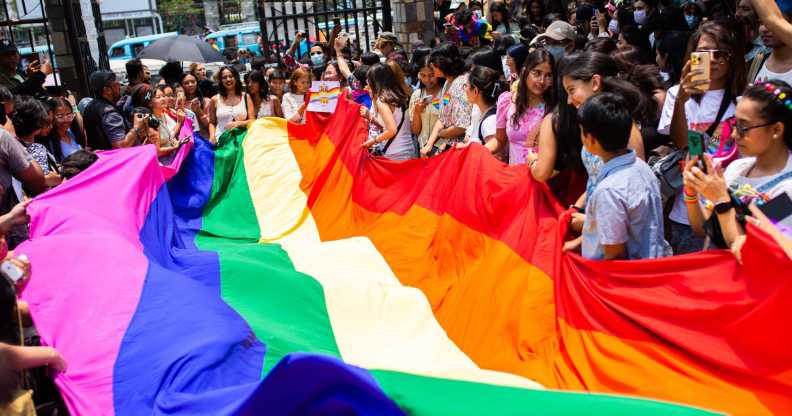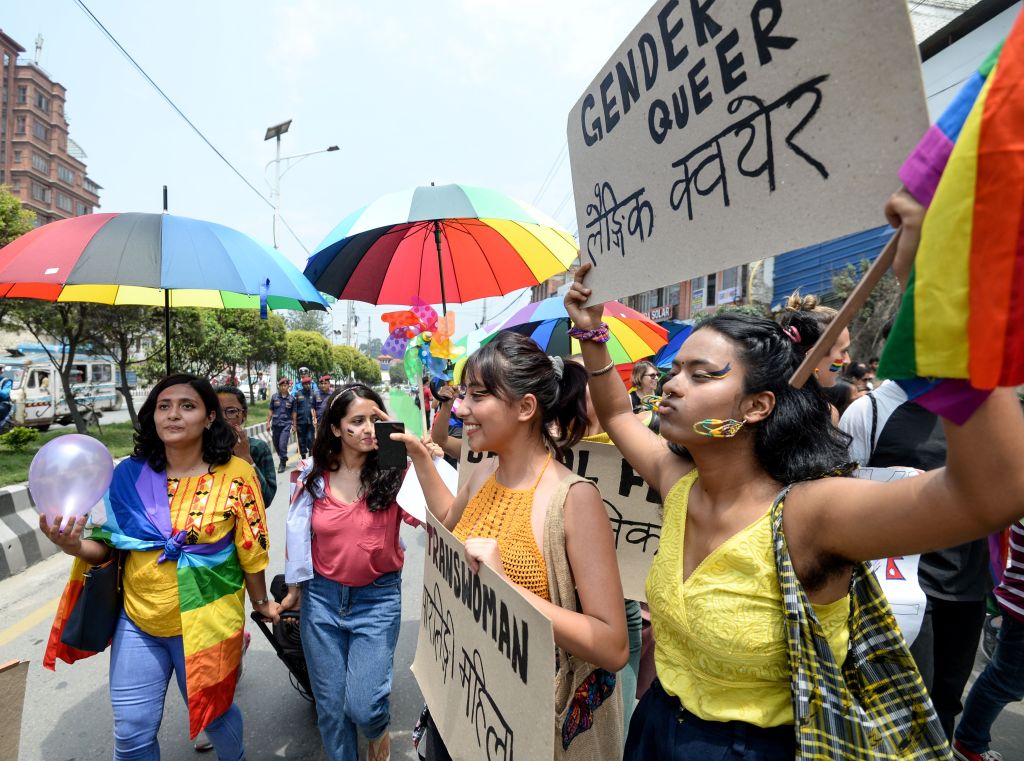Nepal makes history as first South Asian country to recognise same-sex marriage

Nepal has become the first country in traditionally conservative South Asia to legally recognise same-sex marriage. (Getty Images)
Nepal has become the first country in traditionally conservative South Asia to legally recognise same-sex marriages in a stunning victory for LGBTQ+ rights.
Nepals’ Supreme Court took the historic step of ruling that all same-sex marriages must be legally registered on 28 June.
In an interim ruling, Supreme Court judge Til Prasad Shrestha ordered the Nepalese government to immediately begin the registration of same-sex marriages and non-traditional heterosexual unions, while legislation is prepared to amend the law.
Until a new legal framework is introduced to uphold same-sex unions permanently, the Supreme Court ruled that a separate register of marriages for same-sex couples must be set up, reportedly giving same-sex couples the same rights as heterosexual couples.
Sunil Pant, a leading campaigner for Nepalese marriage equality and formerly the first only gay member of parliament, spoke of the joyful reaction to the ruling.
“People are already celebrating,” Human Rights Watch reported him as saying. “They are rushing back to their villages to collect documents for their marriages.”
Pant estimates that around 200 same-sex couples could register their marriages in the next few months.

The verdict follows the submission of a petition in June by LGBTQ+ activists, calling for existing rulings to be enforced. There are rulings dating back to 2007, instructing the Nepalese government to recognise same-sex marriage and form a committee to prepare a law for legalisation. However, successive administrations have dragged their feet and failed to bring legislative change.
Nepal’s Supreme Court has requested that opponents of its order file objections within two weeks.
Nepal’s historic court ruling makes it the first South Asian nation to commit to marriage equality. Bangladesh, Bhutan, India, Pakistan, Sri Lanka and the Maldives still do not allow same-sex couples to get married.
Within the continent of Asia, only Taiwan has legalised same-sex marriage.
In India, a five-judge panel of the country’s top court began its debate in April on whether citizens of the world’s most populous democracy will gain marriage equality.
How did this story make you feel?

